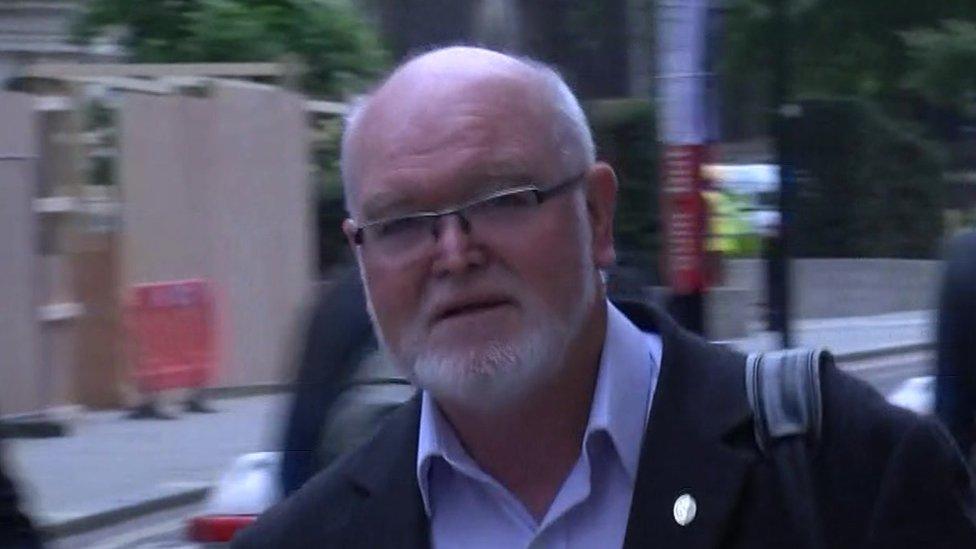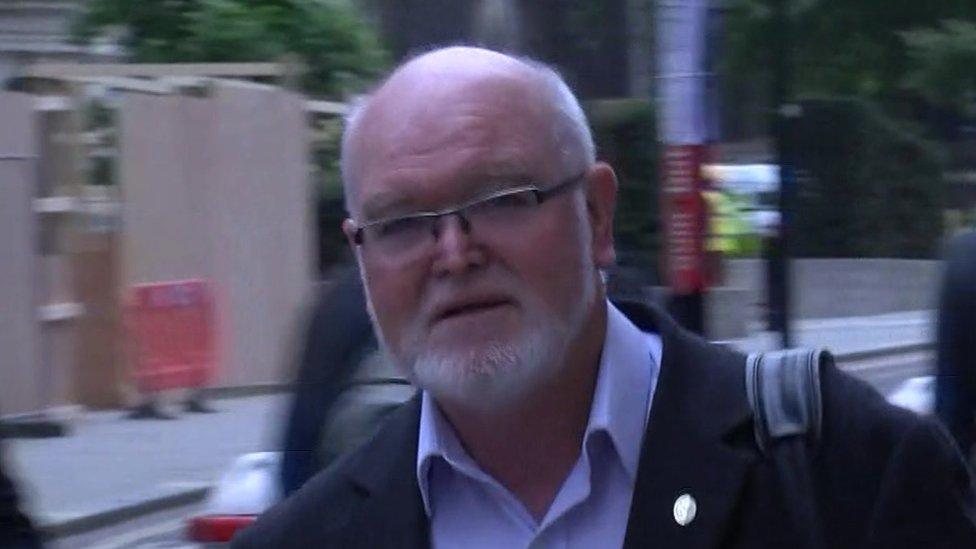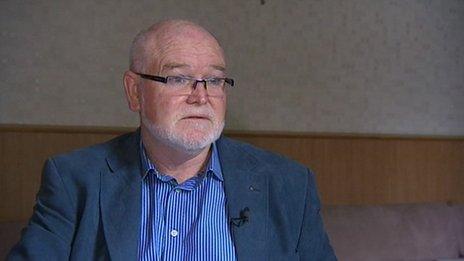ShelterBox founder's son 'special treatment' denied
- Published

Tom Henderson (pictured), his son John, and Darren Gervis are on trial at the Old Bailey accused of conspiracy to commit fraud
The son of the founder of a disaster relief charity has denied receiving preferential treatment to win lucrative contracts, a court has heard.
John Henderson is jointly accused of conspiracy to commit fraud with his father Tom and another man, by securing contracts from the charity Shelterbox.
The Old Bailey heard ShelterBox paid large sums of money to firms linked to inventor Mr Henderson for contracts to supply tents, stoves and utility tools.
All defendants deny the charges.
John Henderson, 35, from Hayle, Cornwall, told the court he "never colluded" with his father.
The court heard that in police interviews after John Henderson was arrested, he was asked if he had ever been given preferential treatment by his father.
He answered: "Definitely not."
Personal income
However, he conceded Shelterbox accounted for 75% of the business of his firm, Camping Solutions, in 2008.
He spent advances from the charity on a motorbike costing £5,600, the court heard.
John Henderson told police it was personal income that he was allowed to earn.
He said: "My father has done everything in the best interests of the charity. We have never colluded."
It is alleged the Hendersons brought in Darren Gervis, 42, to help hide the fraud when trustees of the charity began to ask questions.
Mr Gervis, from Beaminster, Dorset, is accused of trying to conceal John Henderson's involvement once questions were raised.
'Focused on the task'
Tom Henderson set up ShelterBox in his garage in 2000 to deliver humanitarian aid to the victims of man-made and natural disasters around the world and was "responsible for saving hundreds if not thousands of lives", the court has heard.
He told the court he founded the charity after seeing people being thrown bread in a disaster zone on TV.
He said he worked 24/7 and spent his own time and money for two years before the idea got what he described as "traction".
The founder did admit that the charity had grown considerably - 25,000 boxes were distributed in 2005 - and that it maybe was not as professional as some of the trustees would have liked by 2009, but he said the way he ran it was about enthusiasm and getting the job done.
He said both he and his son were "driven and focused on the task" and there were very few people to delegate tasks to.
The trial continues.
- Published20 October 2015

- Published8 October 2015

- Published22 September 2015

- Published19 August 2014
